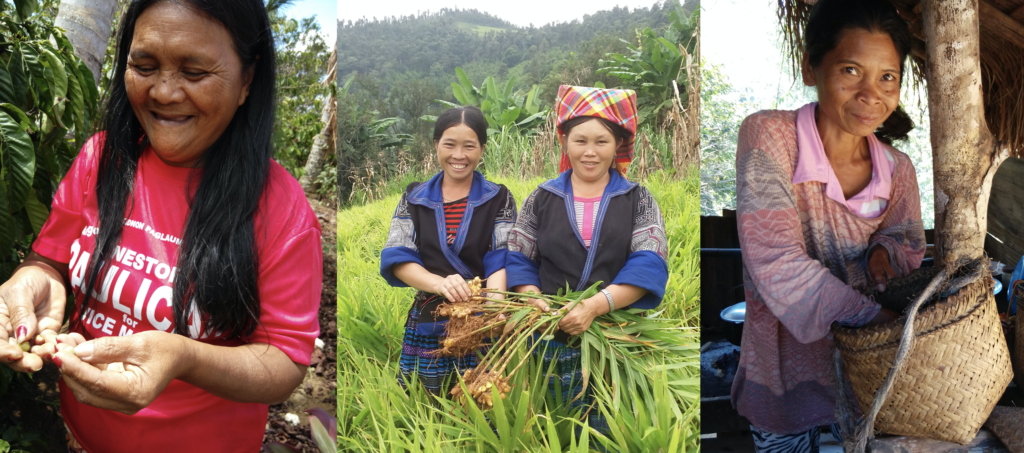On Rural Women’s Day, social enterprise advocates call for immediate action to empower women in agriculture

October 15 – As the world commemorates the International Day of Rural Women, social enterprise advocates call on governments, particularly in the ASEAN region, to take immediate steps to recognize, make visible and empower rural women, who comprise up to 75 per cent of the agricultural labor force in the region.
“Capacitating and empowering women farmers and fishers will go a long way in feeding the world and achieving zero hunger,” said Dr Marie Lisa Dacanay, President of the Institute for Social Entrepreneurship in Asia (ISEA). Dacanay was recognized as Social Innovation Thought Leader of the Year 2019 by the Schwab Foundation for Social Entrepreneurship and the World Economic Forum for her visionary contributions to significantly improve the state of the world.
“The pandemic has exposed our vulnerability and over-dependence on global agri-food systems and the importance of food security founded on resilient farming and fishing communities. It is time to create lasting change that could help us not only to survive the pandemic’s economic onslaught but also to create opportunities to build back fairer where women small-scale farmers are empowered”, Dacanay explained.
Noting this year’s Rural Women’s Day theme “Rural Women Cultivating Good Food for All,” Dacanay said “Rural women have been doubly hit by the pandemic. For so long, they have been relegated to unpaid work, especially those engaged in subsistence farming and the informal economy. We cannot deny their contribution to rural economies, contributions that can be greatly expanded if our countries implement simple yet powerful changes,” Dacanay explained.
“Now is the time to rethink our approach towards agriculture value chains, especially on the participation of small-scale women farmers, Dacanay said.
Systemic barriers in agricultural value chains (AVCs) which hamper the productivity of small-scale women farmers range from lack of access to land, equal pay, credit, agricultural inputs, markets, participation in decision-making bodies, and gender discrimination.
Data shows that 58% of women in the ASEAN are paid less than their male counterparts. When women are engaged, their participation is often limited or constrained by unpaid care and domestic work responsibilities and other barriers such as limited access to resources, services, and under-representation in producers’ groups. In terms of land ownership, only 13% of agricultural land title holders in the ASEAN are women.
ISEA is proposing a set of guidelines that governments in ASEAN may adopt to enable transformational partnerships and women’s economic empowerment in agricultural value chains (AVCs). This is part of a regional initiative in partnership with Oxfam and supported by the Embassy of Sweden in Bangkok on Gender Transformative and Responsible Agribusiness Investments in South East Asia (GRAISEA).
The Transformational AVC Guidelines were formulated following a study on the factors for success of best practices among social enterprises and inclusive businesses engaging small-scale producers across Southeast Asia, particularly in Indonesia, the Philippines, Thailand, and Vietnam.
The Transformational AVC Guidelines is a set of recommended policies and innovations that ASEAN and its member states may consider enabling the empowerment of women and men small-scale producers in agricultural value chains. By supporting social enterprises, inclusive businesses, and social innovation platforms promoting transformational partnerships and women’s economic empowerment, ASEAN and its member states can enable small-scale producers to become food secure, resilient, and empowered stakeholders of sustainable consumption and production systems in a green economy.
“The question of whether we can change the lives and holistically empower women farmers hinges on whether our governments, our societies, are ready and open to implementing key innovations and reforms,” Dacanay concluded. ###
Reference:
Marie Lisa Dacanay
President, Institute for Social Entrepreneurship in Asia
ldacanay@isea-group.net; +63 917 638 8361 (Viber enabled)
